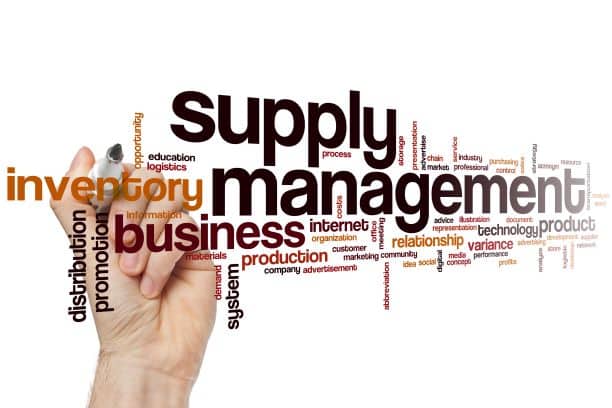What Is Supplier Management?

Supplier management is a process that drives the best value between a company and the suppliers they work with. Within strategic procurement, Supplier Management allows companies to plan, manage and improve interactions with third-parties that provide them with goods or services. Supplier relationship management (see below) is a key factor in a company’s Supplier Management processes and should be beneficial to both parties when procuring goods and services.
Establishing strong relationships, and managing requirements on both sides with your suppliers is essential. It should never be one sided and should benefit both parties.
Why is Supplier Management important?
Every time a company onboards a new supplier there is an element of risk. Supplier Risk Management is a crucial factor for any business and should be carried out regularly for each supplier, especially when they’re first onboarded.
A standard company is highly dependent on their suppliers to deliver goods and services. Identifying risks early, such as poor performance or a reduction in their turnover can be an early indication that a supplier might struggle to meet their contractual obligations and therefore having a potential impact on your company’s deliverables.
If a company does identify any risks with one of their suppliers, it is always important to communicate closely with that supplier to discover further details and to manage the potential risk together, especially if they are critical to the operation of the company.
What is supplier relationship management?
Supplier relationship management (SRM) is the process a company carries out to optimise their suppliers performance and develop strategic relationships with them. This is another crucial factor within the supplier management process and one that each company approaches differently. The overall goal however is usually the same, to build a stronger and closer working relationship with the supplier, in turn building confidence in results from both parties and also better communication which should result in improved customer service for the company and potentially more work in the long-term for the supplier.
What is supplier lifecycle management?
Supplier Lifecycle Management (SLM) is an important strategic process used to manage suppliers throughout the entire relationship between a company and the supplier. It is important for a company to recognise the value and benefits a supplier can bring to their overall procurement processes from when they’re first onboarded all the way to the completion of a project or contract. A supplier should be regularly accessed throughout the entire relationship to identify risks or find further potentials they can bring to help grow the company.
What is supplier information management?
Supplier information management (SIM) is the process that a company will carry out to update and analyse all supplier data under a single repository. This data usually includes a suppliers general company information, contact details, performance and risk analysis, documentation (such as accreditations and certifications) and any contracts they have with that supplier.
Having this information at a company’s fingertips can be highly beneficial and allows them to accurately evaluate them on historic and current data, enabling them to build a picture of their potential future capabilities.
The supplier management process
- 1: Qualification – Companies usually evaluate their suppliers prior to them being onboarded to determine their capabilities to provide the goods or services needed, This might include gathering documentation from a supplier (such as insurance and accreditation) or establishing their values to ensure that they are a good fit for the company.
- 2: Onboarding – This can be a lengthy process depending on a company’s current processes. Relevant stakeholders need to be informed, systems updated and new contracts potentially created. This stage often involves multiple departments, such as finance and legal to ensure current processes are adhered to.
- 3: Collaboration – Collaboration between vendors or suppliers improves relationships and commercial value (see Supplier Relationship Management above)
- 4: Evaluation – Used to measure a supplier’s performance or risk and determine if they’ve met the commercial agreements within a contract. Company’s will usually have their own processes of how they evaluate their suppliers
Benefits of Supplier Management
- Reduced risk – A supplier Management System can reduce the chance of risk as well as providing a benefit of eliminating supply problems via regular supplier evaluation and supplier information insights
- Reduced costs – A proper supplier relationship management process can lead to stronger communication between a company and a supplier which in turn drives compliance and confidence. This can eliminate certain risk elements and also results in additional business being awarded to a supplier, resulting in better economies of scale.
- Transparent pricing – Properly managed suppliers will usually have commercial agreements in place with a strong relationship behind them, resulting in companies being able to take advantage of fixed or discounted pricing, economies of scale and other qualifying criteria.
- Consolidation of suppliers – A consolidated supplier base allows companies to reduce the number of suppliers they purchase from, offering increased business to suppliers they have a stronger relationship with, driving economies of scale and also reducing the number of invoices they need to process
Here at oboloo, we aim to help companies add more value to their supplier relationships. With tools such as cloud-based Supplier Management Software, we help businesses improve their processes as well as their esourcing, contract and savings management activities. Start your free trial with us today! oboloo enables organisations to be supplier smart.
To find out more about Supplier Management check out these links:

